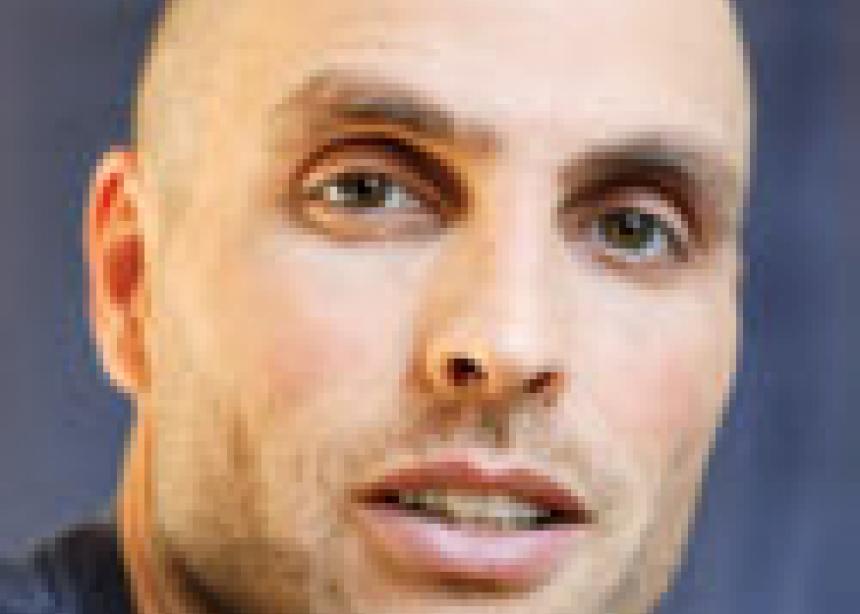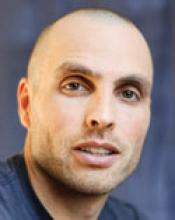In our denomination the academic discipline known as theology is given a lofty position. But when I look at the influences that have formed me as a Christian, theology is just one among many.
Nonetheless it is primary in the training of our leaders and young people. It is the orienting force of conference worship materials. It is our most common way of approaching faith.
Theology can be defined in different ways but most definitions call it a “study” of one sort or another. That is to say, it is about “application of the mental faculties to the acquisition of knowledge” (Webster). Is that the optimal path to God? Is a head-first approach well-suited to most of us?
During my university days—which included theological studies—I recall passionately sharing some big thought with my parents. After listening for a while, my mom replied, with love and in Low German, which was saved for poignant moments: “you’ve gone to school too long.”
I loved exercising my mental faculties but I knew in my gut that Mom, who is a creative thinker herself, was right; I had drifted too far into my head.
I feel the church has drifted similarly, reflecting the history of Western thought over recent centuries.
For some people, the intellect may be the main way of experiencing God, and that is fine, but for most of us it is not. I feel that too much of what I hear in church contexts is aimed at my head. Bible college was more about being right than being loving. In church, I have often been admonished to “think about” the words of a song rather than just let the melody pour over me. The scriptures are often presented as “texts” with words to be defined and knowledge to be acquired rather than the poetry of deep calling to deep.
The theological approach is tied closely to the Bible. We are people of the book and the thing we know best how to do with books, is study them. But does the Bible itself beckon us primarily to apply our mental faculties?
Intellectual understanding will be part of reading the Bible—study and thought is my natural inclination—but I am weary of all the years of straining so hard with my head to extract meaning from scripture. I have found greater value in letting the basic, clear essence of a biblical passage seep into my being, or chanting the Psalms with monks in a chapel imbued with sacredness, or dwelling quietly on simple lines like, “all have received grace upon grace,” “I call you friends,” “abide in me,” “be still and know.”
Some people talk about praying the scriptures. I'm not sure yet what that means, but I am drawn to this different form of attentiveness to holy words.
The great literary scholar and intellectual giant Northrop Frye said, “the Bible should be read as literally as any fundamentalist could desire, but the real literal meaning is an imaginative and poetic one.” The Bible was clearly not put together as a decisive, coherent historical record, he points out. It doesn’t read like a theology textbook, or any other kind of textbook. Many parts of it are obviously poetic and literary, aimed at more than just the intellect.
Of course, for Frye, as for me, this increases rather than diminishes the ability of the Bible to contain and transmit the profoundest truths, which are just as knowable to the imagination and spirit as the intellect.
Less reliance on the theological approach can increase the accessibility of the Bible and faith to those with less intelligence or access to education. This would include kids, people with intellectual disabilities and, in relation to school access, the poor—that is, the exact sort of people that scripture itself privileges. The Bible encourages understanding and knowledge but it also says God has chosen the foolish things to shame the wise.
I am sensitive to the fact that I am critiquing something to which very fine people have dedicated their lives. The theologians among us deserve recognition and gratitude for nurturing the minds, and in many cases also the souls, of the faithful. I'm simply suggesting an evolution in how church leaders are trained, how children are shaped and how Sunday mornings are oriented.
Poetic speech, rituals, visual beauty, silence and stories (which many theologians have become refreshingly fond of) are ways to expand beyond the head-first orientation. And of course music is perhaps the best, most accessible way. Lets create more space for beauty and wonder. Lets study less. Lets seek spiritual formation as much as knowledge. And let's privilege the role of the least intellectually oriented people among us for there we shall find the mystery of Christ's love.



Add new comment
Canadian Mennonite invites comments and encourages constructive discussion about our content. Actual full names (first and last) are required. Comments are moderated and may be edited. They will not appear online until approved and will be posted during business hours. Some comments may be reproduced in print.